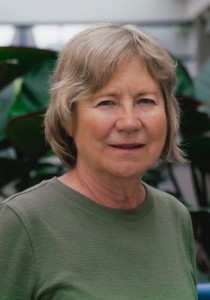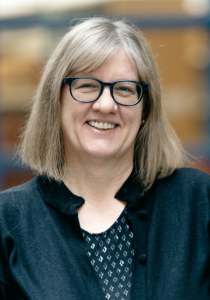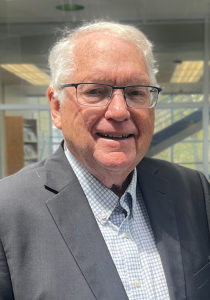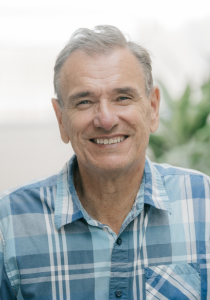News
» Go to news mainWriting Their Next Chapters 鈥� 2024 Schulich Law Retirements

Farewell and best wishes to seven of the Schulich School of Law鈥檚 long-serving faculty and staff members who are retiring this year. They will be fondly remembered for their significant contributions to the legal profession and the law school community.
Michael Deturbide
Professor Michael Deturbide K.C. (LLB 鈥�89, LLM 鈥�97), former Purdy Crawford Chair in Business Law, retired after 30 years at the Schulich School of Law. Deturbide, who joined the faculty in 1994, taught Business Associations, Commercial Law and Taxation Law, and developed and taught the Corporate Transactions course. His research interests include corporate law, media law and the impact of technology on the law. He helped establish Dalhousie University鈥檚 Master of Electronic Commerce Program and its Law & Technology Institute, was the law school鈥檚 longest-serving associate dean and received the Law Students鈥� Society (LSS) and Dalhousie Law Alumni Association (DLAA) Award for Excellence in Teaching in 2001. Deturbide is co-editor-in-chief and co-founder of the Canadian Journal of Law and Technology and is the author and co-author of several texts and case books on business and/or technology law, including the Walter Owen Book Prize winning Electronic Commerce and Internet Law in Canada. His post-retirement plans include travel and family time at his cottage, as well as continuing his appointment as a commissioner of the Nova Scotia Securities Commission.
Jocelyn Downie
 Professor Jocelyn Downie, C.M., FRSC, FCAHS, SJD, retired after teaching for 27 years with Dalhousie University鈥檚 Faculties of Law and Medicine. Downie was a member of the Dalhousie Health Justice Institute with a focus on end-of-life law and policy, particularly on assisted dying. She taught Health Care Ethics and the Law, Legal Ethics and Professional Responsibility and various law and public policy courses. She also supervised graduate students and postdoctoral fellows on different aspects of health law and policy. She was the principal investigator on numerous research projects in health law and policy, has published dozens of books and articles on health law and policy topics and has spoken at conferences across Canada and around the world. Downie also served on expert panels advising governments and engaged in advocacy, including as part of the legal team in Carter v. Canada which made assisted dying legal in Canada. Following her retirement, she will continue to engage in research and advocacy on assisted dying and also plans to take up woodturning.
Professor Jocelyn Downie, C.M., FRSC, FCAHS, SJD, retired after teaching for 27 years with Dalhousie University鈥檚 Faculties of Law and Medicine. Downie was a member of the Dalhousie Health Justice Institute with a focus on end-of-life law and policy, particularly on assisted dying. She taught Health Care Ethics and the Law, Legal Ethics and Professional Responsibility and various law and public policy courses. She also supervised graduate students and postdoctoral fellows on different aspects of health law and policy. She was the principal investigator on numerous research projects in health law and policy, has published dozens of books and articles on health law and policy topics and has spoken at conferences across Canada and around the world. Downie also served on expert panels advising governments and engaged in advocacy, including as part of the legal team in Carter v. Canada which made assisted dying legal in Canada. Following her retirement, she will continue to engage in research and advocacy on assisted dying and also plans to take up woodturning.
Elaine Gibson
 Associate Professor Elaine Gibson retired after 32 years of teaching and research at Dalhousie University, 13 years of which she spent as the associate director of the Dalhousie Health Justice Institute. Her areas of expertise include tort law, public health law, medical malpractice and privacy law. She participated in several research projects concerning the privacy and confidentiality of electronic health information, focusing on the uses of information in health research and public health. Gibson has frequently testified before House of Commons and Senate committees on issues relating to public health. She has served national and provincial organizations in relation to health research and the ethical use of data. Following retirement, she plans to devote more time to travelling and is considering writing a book on an area that combines her research interests in mental health and tort law.
Associate Professor Elaine Gibson retired after 32 years of teaching and research at Dalhousie University, 13 years of which she spent as the associate director of the Dalhousie Health Justice Institute. Her areas of expertise include tort law, public health law, medical malpractice and privacy law. She participated in several research projects concerning the privacy and confidentiality of electronic health information, focusing on the uses of information in health research and public health. Gibson has frequently testified before House of Commons and Senate committees on issues relating to public health. She has served national and provincial organizations in relation to health research and the ethical use of data. Following retirement, she plans to devote more time to travelling and is considering writing a book on an area that combines her research interests in mental health and tort law.
Diana Ginn
 Professor Diana Ginn began teaching at the law school in the fall of 1992 and was a member of the Faculty of Law for more than 30 years. She received the LSS & DLAA Award for Excellence in Teaching in 1997, was presented with the class ring from the 2005 graduating class and won the Hanna and Harold Barnett Award in Law for Excellence in Teaching First-Year Law four times (2005, 2012, 2014 and 2020). Ginn鈥檚 research and writing interests cover a variety of topics including religion and the law, administrative law, aboriginal title and property law, health care issues and gender issues. She has developed and taught courses in law at Hue University in Vietnam and the Atlantic School of Theology in Halifax. She has acted as a coach and examiner in the Negotiations and Conflict Management Programme at Dalhousie and facilitated a variety of seminars on conflict resolution. In 2016-2017, while on sabbatical, she held the Simon Visiting Fellowship at the University of Manchester, England. Post-retirement, she will continue working on several writing projects but her focus will be family, including her five grandchildren.
Professor Diana Ginn began teaching at the law school in the fall of 1992 and was a member of the Faculty of Law for more than 30 years. She received the LSS & DLAA Award for Excellence in Teaching in 1997, was presented with the class ring from the 2005 graduating class and won the Hanna and Harold Barnett Award in Law for Excellence in Teaching First-Year Law four times (2005, 2012, 2014 and 2020). Ginn鈥檚 research and writing interests cover a variety of topics including religion and the law, administrative law, aboriginal title and property law, health care issues and gender issues. She has developed and taught courses in law at Hue University in Vietnam and the Atlantic School of Theology in Halifax. She has acted as a coach and examiner in the Negotiations and Conflict Management Programme at Dalhousie and facilitated a variety of seminars on conflict resolution. In 2016-2017, while on sabbatical, she held the Simon Visiting Fellowship at the University of Manchester, England. Post-retirement, she will continue working on several writing projects but her focus will be family, including her five grandchildren.
Claire McNeil
 Claire McNeil (鈥�85), retired after joining Dalhousie Legal Aid Service in 1991 as a staff lawyer. McNeil was first introduced to the Clinic as a Dalhousie law student when she attended an open house during her second year. She says it鈥檚 where she discovered the reason why she went to law school and what being a lawyer was all about. She accomplished a great deal in terms of student impact and systemic change during her more than 30-year career, including recently completing work on a ground-breaking disability rights case against the province of Nova Scotia, as a lawyer for the Disability Rights Coalition of Nova Scotia. She also successfully appeared before the Supreme Court of Canada in 2005, for the case Nova Scotia (Minister of Health) v. J.J., another historic legal win for disability rights.
Claire McNeil (鈥�85), retired after joining Dalhousie Legal Aid Service in 1991 as a staff lawyer. McNeil was first introduced to the Clinic as a Dalhousie law student when she attended an open house during her second year. She says it鈥檚 where she discovered the reason why she went to law school and what being a lawyer was all about. She accomplished a great deal in terms of student impact and systemic change during her more than 30-year career, including recently completing work on a ground-breaking disability rights case against the province of Nova Scotia, as a lawyer for the Disability Rights Coalition of Nova Scotia. She also successfully appeared before the Supreme Court of Canada in 2005, for the case Nova Scotia (Minister of Health) v. J.J., another historic legal win for disability rights.
听
Phillip Saunders
 Professor Phillip Saunders K.C. (BA 鈥�76, MA 鈥�82, LLB 鈥�84) retired after teaching for more than 30 years in the Faculty of Law. He joined the law school in 1992, teaching Public International Law, Law of the Sea, Environmental Law, Torts, Judicial Remedies and Oral Advocacy and was cross-appointed for several years to the School for Resource and Environmental Studies. Saunders was an adjunct professor at China鈥檚 National Institute for South China Seas Studies. He participated in joint research, training and conflict-resolution projects in Southern and Southeast Asia, Southern and East Africa, the Caribbean, the South Pacific and the European Union, focusing on maritime boundary issues and international law of the sea. He was also Dalhousie鈥檚 dean of law from 2005-2010, helping secure the transformational Schulich Grant, thus becoming the first dean of the renamed Schulich School of Law. In retirement, he will continue writing and training projects, including co-editing the 10 th ed. of Kindred鈥檚 International Law, Chiefly as Interpreted and Applied in Canada, but mainly plans to enjoy time with family, especially his new grandchild.
Professor Phillip Saunders K.C. (BA 鈥�76, MA 鈥�82, LLB 鈥�84) retired after teaching for more than 30 years in the Faculty of Law. He joined the law school in 1992, teaching Public International Law, Law of the Sea, Environmental Law, Torts, Judicial Remedies and Oral Advocacy and was cross-appointed for several years to the School for Resource and Environmental Studies. Saunders was an adjunct professor at China鈥檚 National Institute for South China Seas Studies. He participated in joint research, training and conflict-resolution projects in Southern and Southeast Asia, Southern and East Africa, the Caribbean, the South Pacific and the European Union, focusing on maritime boundary issues and international law of the sea. He was also Dalhousie鈥檚 dean of law from 2005-2010, helping secure the transformational Schulich Grant, thus becoming the first dean of the renamed Schulich School of Law. In retirement, he will continue writing and training projects, including co-editing the 10 th ed. of Kindred鈥檚 International Law, Chiefly as Interpreted and Applied in Canada, but mainly plans to enjoy time with family, especially his new grandchild.
David VanderZwaag
 Professor David VanderZwaag (鈥�82), Canada Research Chair in Ocean Law and Governance and former director of the Marine & Environmental Law Institute, retired after 38 years of researching and teaching international environmental law. VanderZwaag initiated the granting of Schulich Law鈥檚 Marine and Environmental Law Program certificates and was a co-founder and first co-director of Dalhousie鈥檚 interdisciplinary Marine Affairs Program. He is a member of the International Union for Conservation of Nature鈥檚 World Commission on Environmental Law (WCEL), was co-chair of WCEL鈥檚 Specialist Group on Oceans, Coasts and Coral Reefs and was a co-founder of the Australian-Canadian Oceans Research Network. His research spans topics including polar law, principled ocean governance, fisheries and aquaculture management, species at risk protection and transboundary conflicts and cooperation. Upon retirement, he will remain active on many research fronts, including serving as one of the lead authors in the North American Biodiversity and Climate Change Assessment, led by the United States Geological Survey in collaboration with Environment and Climate Change Canada and the National Commission for the Knowledge and Use of Biodiversity in Mexico.
Professor David VanderZwaag (鈥�82), Canada Research Chair in Ocean Law and Governance and former director of the Marine & Environmental Law Institute, retired after 38 years of researching and teaching international environmental law. VanderZwaag initiated the granting of Schulich Law鈥檚 Marine and Environmental Law Program certificates and was a co-founder and first co-director of Dalhousie鈥檚 interdisciplinary Marine Affairs Program. He is a member of the International Union for Conservation of Nature鈥檚 World Commission on Environmental Law (WCEL), was co-chair of WCEL鈥檚 Specialist Group on Oceans, Coasts and Coral Reefs and was a co-founder of the Australian-Canadian Oceans Research Network. His research spans topics including polar law, principled ocean governance, fisheries and aquaculture management, species at risk protection and transboundary conflicts and cooperation. Upon retirement, he will remain active on many research fronts, including serving as one of the lead authors in the North American Biodiversity and Climate Change Assessment, led by the United States Geological Survey in collaboration with Environment and Climate Change Canada and the National Commission for the Knowledge and Use of Biodiversity in Mexico.
Recent News
- A gift of culture: Mi鈥檏maq art finds new home at Dalhousie
- Professor Emeritus Wayne MacKay ft in "The Todd Veinotte Show: May 15, 2025"
- Meet Andrew Weir, Class of 2025
- Assistant Professor Suzie Dunn and Associate Professor Michael Karanicolas ft in "The business model of lies, gossip and misinformation about Jack and Lilly Sullivan on social media"
- Professor Rob Currie ft in "U.S. prosecutors will not seek the death penalty for Canadian accused in transnational drug ring case"
- Assistant Professor Suzie Dunn ft in "Deepfakes and A.I. generated, non鈥慶onsensual intimate imagery"
- Professor Matthew Herder ft in "Millions of Canadians' health data available for sale to pharmaceutical industry, study shows"
- Meet Lorenze Cromwell, Class of 2025

